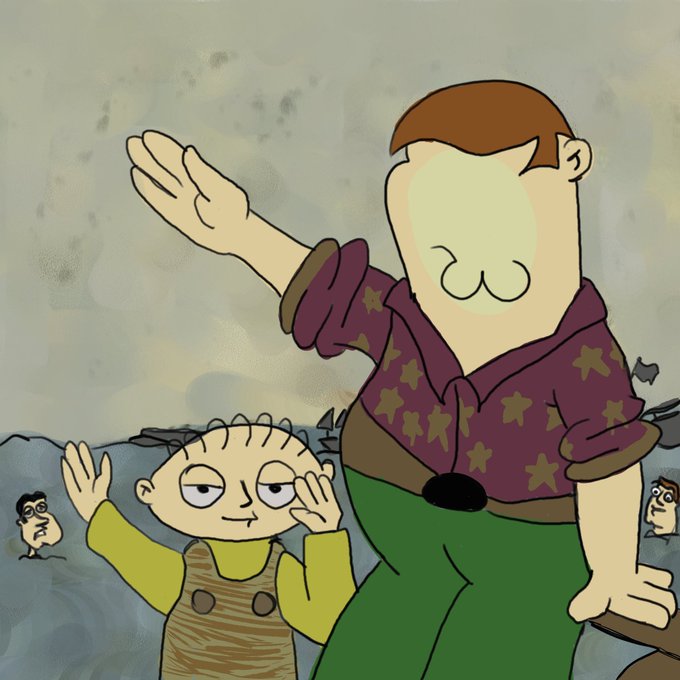"my, my! humans! so aggressive."
rape, murder, nukes, war, torture, power, seemingly unlimited greed...
why don't i have that insatiable drive?
can't all be how i was raised, can it?
do you know of any studies or philosophical insights?
thx! 🙂
Lead exposure in childhood is one thing we know leads to poorer impulse control; that is to say, being short-sighted and selfish.
I think it's most to do with exactly how much wealth a person was born into.
Someone who is constantly on the verge of being homeless, possibly even starving, will very soon get desperate enough to do things they aren't proud of to survive.
On the other hand, someone born into immense wealth will have very little understanding of people who are struggling. That'll make it very hard for them to empathize. And with all that power, their sheer indifference will have them crushing the poor under their boots like ants. This is highly exacerbated by the fact that it is in their best interest to support policy that transfers wealth upwards.
My thoughts are similar, but I would consider the cause to be the lack of adversity and challenges. If you are brought up in a sheltered environment where every problem is handled by someone else, you don't develop proper empathy or problem solving skills.
I feel like the ability to experience empathy to whatever degree is biological, but whether one actually sympathizes and acts compassionately is due to knowledge and experience.
An empathetic person could learn about something, sympathize, and decide to act compassionately. Or that same person could understand another's plight and not sympathize for some reason, such as propaganda telling them that person deserves what they got. Or they might sympathize and not act compassionately due to negative consequences, socially, legally, or otherwise.
If effect, they'd act as a "bad person" but would not be a "bad" person deep down. Which would different from someone who cannot empathize (a psychopath) or someone who can empathize (understand), sympathize (feel the other's pain), and decide not to be compassionate, which I'd categorize as sadistic.
For example, I have a feeling that some not insignificant number of people who might be called "transphobic" simply have no experience with or knowledege of actual trans people. Those with the ability to experience empathy to any significant degree would understand the plight
The anthropologist Sarah Blaffer Hrdy has theorized that empathy and altruism are acquired in early childhood by observing when one’s caretakers show empathy towards oneself, which both gives infants a sense of security in interacting with other people and which, because babies learn through observation and pattern recognition, establishes a standard in their minds that tells them humans are supposed to be selfless and kind to one another. This theory is relevant to us because, since most of us live in decaying neoliberal hellholes, many people’s parents are too busy working to give them appropriate care during their formative years and are not rich enough to pay for people who are qualified to do so in their stead. When it comes to people whose parents are rich, the selfishness that lead to them accumulating wealth could get passed on to their children by the same method. In other words, the conditions created by capitalism could be fucking with the ability of infants to become good people later in life
I think it's all about empathy.
The ability to experience empathy, like any other trait varies at the biological level (and probably other levels as well). It only makes sense some would be born with little ability to experience empathy, some with so much empathy they worry about ants, but most people in the middle.
Those with little empathy (and therefore little sympathy or compassion, as those come from empathy) don't allow morality to restrain their behavior so they tend to rise to power.
Most of the world's problems are because people who are effectively psychopaths are in charge everywhere. The psychopaths have created a world through capitalism that pits us against each other and brings out the worst in us.
A lot of those shitty things aren't normal in humans, but become much more common if you force them into violent, existential conflicts.
And insatiable greed is promoted as good at almost every level of neoliberal society, so that one should be self-explanatory.
People just say "human nature" as an excuse for their own conservatism
I don't have an answer to you but if you like this sort of discussions/topics, I highly recommend the book Behave by Sapolsky.
I would guess a person's life circumstances. Humans tend to reflect pain they're experiencing onto others. If you're hungry, that's a form of pain. If you're neglected, that's a form of pain. Even the sons of billionaires experience pain, probably in a way that's hard for reg folks to grasp.
Also, I think your dopamine regulation being all messed up might also contribute. Those people who seem to flail and rage because nothing can seem to satisfy them.
Also, everyone does terrible things and hurts others. You can be charitable and kind from one perspective and an oppressor in ways you won't allow yourself to see. We all do it.
We know that people who have less tend to be more generous than people who have more.
The long branch is the long arm of altruism, the short branch is the short arm of altruism.






